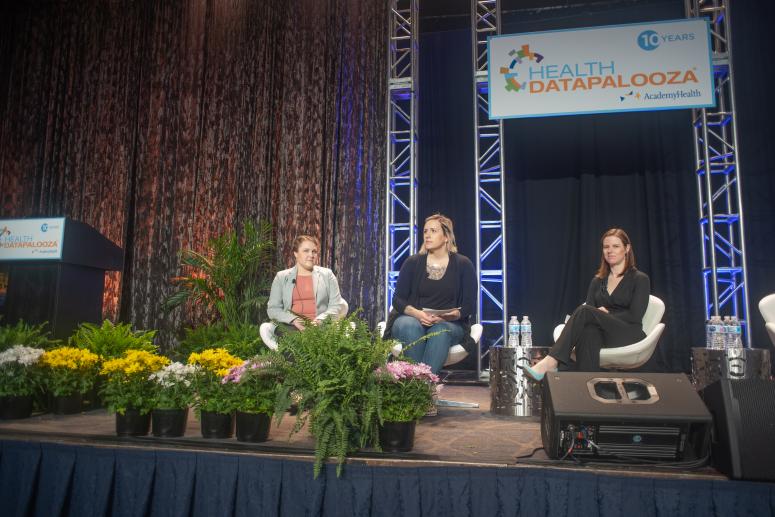
2020 was a challenging and transformative year for everyone, especially for those working in health care and health policy. The pandemic threw into sharp focus the many ways the health care industry continues to struggle with age-old problems. From my vantage point, health data use and health policy choices are often at the root of both barriers and opportunities for progress. Perhaps that’s why I’m looking forward to the co-located Health Datapalooza and National Health Policy Conference next month with such enthusiasm.
The agenda is full of sessions related to a number of topics, including two that I’m thrilled to hear from brilliant experts on, COVID-19 and racial equity. Last year sparked conversations around how we use data in public health, how past policies failed to build the systems and connections we needed in a moment of crisis and the way racial bias is reflected and perpetuated in our collection and use of health data. I’m looking forward to coming together virtually with both the data geeks and the policy wonks at the virtual conference to hear the latest on how the field is looking at our priorities over the next four years—and beyond.
This year is also a pivotal moment for us to continue reckoning with structural racism, implicit bias, and rampant health inequities. In 2020 we grappled with a pandemic that left Black, Indigenous and people of color more likely to both contract and die from COVID-19. The pandemic also brought into focus additional factors that have historically contributed to health disparities across our health system. Cities were unable to control COVID spread in migrant workers and homeless individuals living in close quarters, lack of access to transportation resulted in inaccessible drive through testing for many, and food insecurity soared, which many will feel the impacts from in years to come.
When it comes to policy progress around data and interoperability in the last year, I am excited to hear how regulations around data sharing and interoperability from both the Centers for Medicare and Medicaid Services and The Office of the National Coordinator might transform the way we use data and technology to improve care. Both rules push entitles like payers, providers, and Electronic Medical Record companies to use standards-based APIs to share data with patients, researchers, and technology developers – building a future where critical information is available in real-time to help improve outcomes.
To make progress on these persistent challenges, we need diverse perspectives and assurance that the inequities reflected in data used for policymaking and care delivery are acknowledged and remediated. More and more, health data and health policy are intertwined and progress in one area requires advances in the other. I’m not aware of another meeting that recognizes this as literally as AcademyHealth’s National Health Policy Conference and Heath Datapalooza. Co-locating the two meetings means attendees get to talk about all the issues important to both communities extending beyond just access and use of data to consider how we make policy decisions based on the information. Reducing the time it takes for researchers to get access to data, for policy makers to get access to research and for changes in delivery of care to impact outcomes for patients means a faster path to life saving interventions and treatments.
The communities within health care exist symbiotically. Access to good data helps inform our decisions; if governance policies or funding siloes don’t align, we need folks from across the health care spectrum to join together in support of common goals and help make improvements. Without differing perspectives involved in the conversation, we miss out on the opportunity to truly drive innovation. For example, policies can have tremendous technical and operational implications. Without involving care teams, technologists, and patients, the assumptions of one group can create friction in implementation that negate original intended outcomes.
Beyond the topics on the agenda, I am excited for one other unique result of this time. We’ve all spent a lot of 2020 alone. Even though we still can’t be together physically, we’re in a transformative moment to be gathering – even virtually. It’s not the same as being in person, but virtual meetings have their benefits. For example, you might not be so bold to walk up to a health system CEO in person, but online, it’s a bit easier to send them a quick introductory chat message.
This community is full of amazing self-starters who are working on innovative projects. Together we can generate a lot of new momentum for what comes next. Please join us and, when you attend, check out sessions on topics that may not be familiar to you. The cross-pollination offered at this conference is a huge advantage to this unique meeting.
I can’t wait to learn from you and with you!